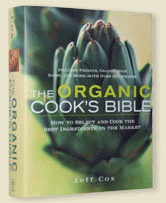The Trouble with the Supreme Court
Organic Lifestyle Comments (5)
So, let’s get this straight. With its Citizens United decision, the Supreme Court affirmed that corporations are persons, with the same Constitutional rights as flesh-and-blood human beings. And with its recent McCutcheon vs. FEC decision, it said that limits on contributions to political campaigns curtail First Amendment rights.
The Court has ruled, in effect, that Big Money, whether amassed by a corporation or by individuals (most of whom own and run corporations), can now buy control of the legislative branch of the government, and, by financially supporting a favored Presidential candidate, control the Executive Branch and the government’s bureaucracies, too.
Polls show that most Americans don’t like this turn of events one bit—but there it is.
Now consider for a moment a human being who acts like a big corporation or a big bank or a Wall Street trading firm. For starters, this person is dedicated to one thing: making money. That is his (or her) reason for being. And this person will make money legally or illegally, will collude with others to fix prices, turn interest rates to his favor, foreclose mortgages on the victims of his fraud, and amass a fortune doing it.
Greed is his driving force—so much so that this person sells weed killers that he knows are poisonous to human beings as well as weeds. He also goes around causing trouble and fomenting disputes among his neighbors, and then sells them guns and clubs to use on each other.
He runs a restaurant that sells food laced with toxic chemicals. He enslaves people to sew garments and make shoes that he sells at inflated prices. His slaves are exploited and often die because of his uncaring policies.
He owns farms where animals are treated cruelly, the land is poisoned, and waterways are fouled. People get sick and die because of his greed—lots of people.
What would we do to someone like this who lived in our home town? For sure we’d have him arrested, give him a trial, and convict him if the charges are proven. Then we’d give him life in prison or, if he lived in Texas, execute him.
Well, the Supreme Court says corporations are people. Maybe we should start treating them like people.
***
ORGANIC FOOD NOW AT WALMART AND TARGET
Walmart has announced it has added 100 new organic products to its shelves this month, according to Stacie McMillan, writing in The Guardian. Target has also announced plans to market organic food.
But do Walmart shoppers, most on tight budgets, want to spend more for organic food? In reality, researchers have found that the poor actually consider organic food more important than the rich. Walmart’s market researchers well know that the poor actually do care about organic.
“The new products will be branded under Wild Oats, a longstanding natural foods brand that Whole Foods bought and then resold in the 2000s. The prices seem low enough to fit the modest shopper’s budget: a can of Whole Foods’ 365 organic corn sells for $1.29 at my local Brooklyn store, but Walmart plans to sell Wild Oats vegetables for 88 cents a can,” McMillan writes.
For families that work hard yet still need food stamps to pay for food, Walmart’s program offers something new: an organic option they can afford.
***
BE SKEPTICAL OF WALMART’S ORGANIC FOOD
Eve Andrews, writing in Grist, has a different take on Walmart’s program than Ms. McMillan. Here’s what she has to say, in part:
“At first blush, this appears to be great news. Cheaper, more accessible organic food-–isn’t that one of the prerequisites for the kind of healthy food system we’ve all been waiting for?
“’We’re removing the premium associated with organic groceries,’ said Jack L. Sinclair, executive vice president of Walmart U.S.’s grocery division. The Wild Oats organic products will be priced the same as similar nonorganic brand-name goods.
“If that sounds suspicious to anyone familiar with organic growing practices, it should. We spoke with Coach Mark Smallwood, executive director of the Rodale Institute in Maxatawny, Pennsylvania, about how Walmart could manage to offer such low prices, and what that might mean for organic farmers across the country. Smallwood explains that the concept of a premium associated with organic food is misleading, because the price of an organic good reflects the true cost of its production.
“’The issue is that there aren’t the subsidies available to organic farmers that there are [for conventional farmers.] So there’s a question in my mind about how Walmart is going to pull this off and be able to make profit,’ Smallwood said. ‘And for them to even come out and make that statement before they’ve started is a huge question mark. Somebody’s going to have to pay, and my hope is that it’s not the organic farmer.
“’The potential is there for [organic farmers] to be treated very well, and paid handsomely for the wonderful artisan stewardship of the planet,’ Smallwood says. ‘What is that worth to Walmart? We’re going to find out.’”
Andrews reached out to Walmart specifically to ask if the company was planning to source from small-scale farmers, and where its farmers would be located geographically. This was their response via email:
“’Regarding your questions, we are working with our suppliers to create a surety of demand which ultimately helps us pass along savings to our customers. We’re using our scale to deliver quality, organic groceries to our customers for less. When we do this, it’s a win, win, win situation for our customers, our suppliers and our company. Our customers can trust that they will save money at Walmart, our suppliers can count on us for the demand and we are able to offer innovative new products.’
“This response provides exactly none of the specifics that we sought,” Andrews writes. “We’ll just have to wait and see, and hope for the best.” I think Andrews is exactly right to be skeptical.
***
RUSSIA REJECTS GMO FOOD
Both Prime Minister Dmitry Medvedev and the nation’s agriculture minister have released official statements that Russia shall remain free of genetically engineered foods, and that the ban on imports shall continue. The declarations emphasized that adequate resources and land exist with which to grow organic food for their country’s citizens.
***
FRENCH PARLIAMENT BANS GMO CORN
Brandon Baker, writing in EcoWatch, reports that France’s lower house of Parliament banned GM corn in a sweeping fashion. Now, no variety of GM corn can be cultivated because of its toxic threats to the soil, insects and human health.
Just a month ago France prohibited the sale, use, and cultivation of Monsanto’s MON 810, the only GM crop that had been authorized by the European Union.
“It is essential today to renew a widely shared desire to maintain the French ban,” Jean-Marie Le Guen, the minister in charge of Parliament relations told the National Assembly. “This bill strengthens the decree passed last March by preventing the immediate cultivation of GMO and extending their reach to all transgenic maize varieties.”
That means that future strains will be banned even if the EU approves them. That includes Pioneer 1507, a crop developed by DuPont and Dow Chemical that is still on the table for EU states and could be approved later this year. The ban now heads back to the Senate, which rejected a similar one two months ago, calling it unconstitutional.
###












